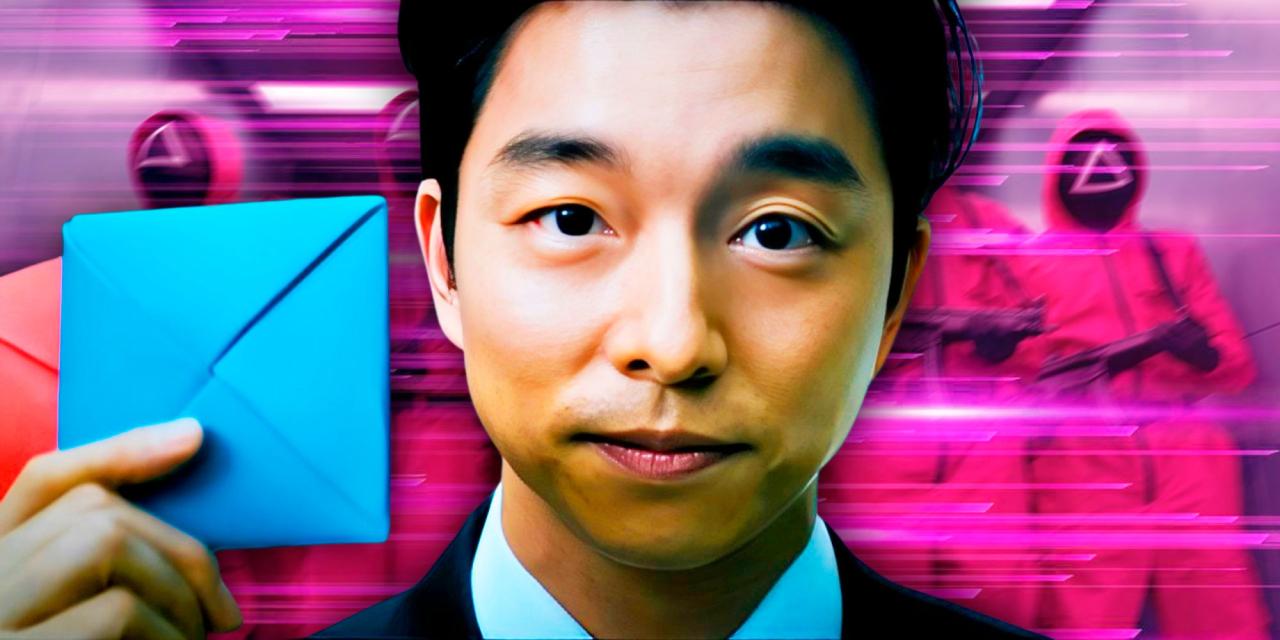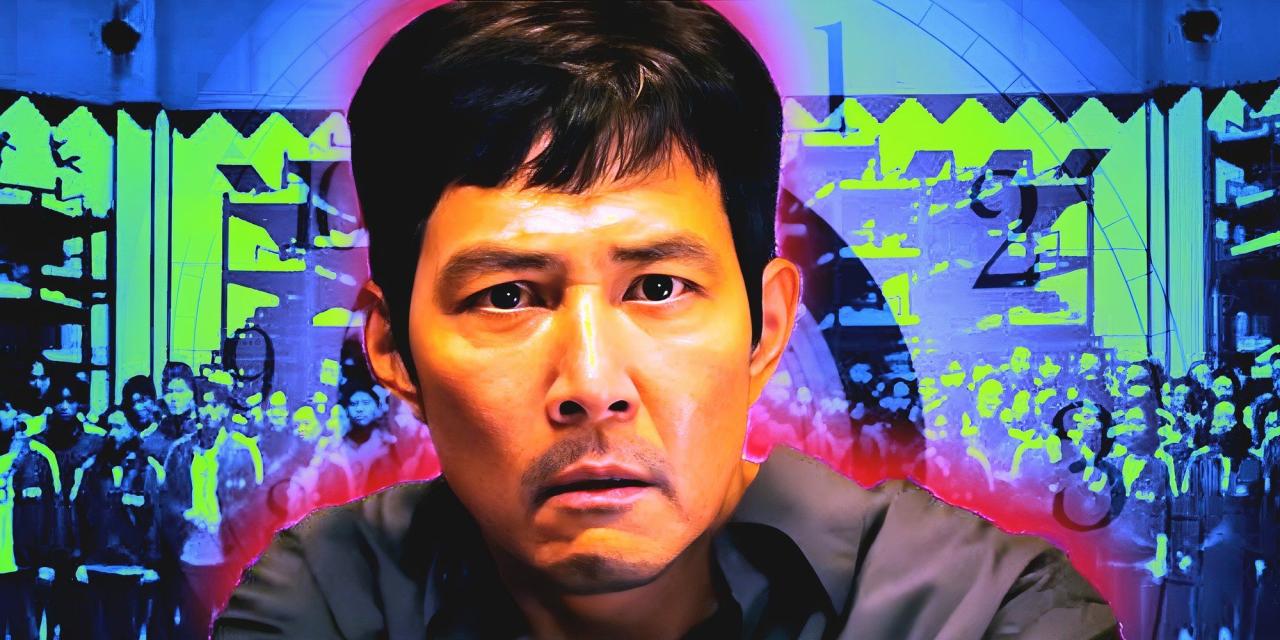Squid Game Histoire Vraie? The hit Netflix show wasn’t just a thrilling spectacle; it sparked intense debate about its reflection of real-world issues. This exploration delves into the societal pressures, economic inequalities, and gambling addiction prevalent in South Korea, examining how these elements inspired the show’s brutal games and desperate characters. We’ll unpack the show’s powerful social commentary and analyze its surprising global impact.
So, you’re wondering about “Squid Game histoire vraie”? While the show’s fictional, the desperation it depicts sadly reflects real-world struggles. Think about the ingenuity needed to survive – similar resourcefulness is seen in the development of technology like the ukrainian sea drone , a tool used in a very different kind of fight for survival. The show highlights the lengths people go to for a chance at a better life, a theme sadly relevant even amidst advancements in military technology.
From the crushing weight of debt to the allure of high-stakes gambling, we’ll dissect the parallels between the fictional games and the harsh realities faced by many. We’ll look at the show’s depiction of violence and exploitation, exploring its ethical implications and its resonance with audiences worldwide. Prepare for a deeper dive into the unsettling truths behind the games.
The Inspiration Behind “Squid Game”: Real-World Parallels

The dystopian world of “Squid Game” isn’t entirely fictional. Its brutal games and desperate contestants reflect harsh realities of economic inequality and societal pressures, particularly prevalent in South Korea but also echoing global struggles.
Real-Life Debt Crises and Their Impact
South Korea, despite its economic success, has a significant problem with household debt. Many individuals and families face crushing financial burdens, leading to severe consequences like homelessness, mental health issues, and even suicide. Globally, similar debt crises plague many developing and developed nations, forcing people into precarious situations where basic needs are threatened.
Societal Pressures and Economic Inequalities
The intense competition for jobs, education, and social status in South Korea contributes to the pressure cooker environment depicted in “Squid Game.” The show highlights the widening gap between the wealthy elite and the struggling masses, illustrating the desperation driven by limited opportunities and a hyper-competitive society. This is mirrored in many parts of the world where social mobility is limited and economic disparities are vast.
Historical Context of South Korean Economic Development
South Korea’s rapid economic growth since the Korean War has been remarkable, but it has also been unevenly distributed. This rapid development led to significant wealth accumulation for some, while others were left behind, creating a stark contrast between the haves and have-nots. The “Squid Game” narrative taps into this complex history, highlighting the anxieties and vulnerabilities that arise from such a dramatic economic transformation.
So you’re wondering about “squid game histoire vraie”? While the show’s fictional, its themes of desperation and inequality resonate with real-world struggles. Some speculate about the inspiration behind the games, leading some to explore fan theories like the potential for a “vip 3 squid game,” as detailed on this site: vip 3 squid game. Ultimately though, the show’s power lies in its exploration of the dark side of societal pressures, a reality that sadly transcends the fictional games themselves.
Comparison of Fictional Game Elements and Real-World Issues
| Game Element | Real-World Parallel | Description | Impact |
|---|---|---|---|
| The Games Themselves | Cutthroat Competition for Resources | The games represent the brutal struggle for survival in a highly competitive society where resources are scarce. | Leads to desperation, exploitation, and potentially fatal consequences. |
| Debt as a Motivator | Crushing Personal Debt | Characters are driven to participate due to overwhelming debt. | Financial ruin, loss of family, and mental health issues. |
| VIP Spectators | Wealth Inequality and Elitism | The wealthy elite watch and gamble on the suffering of the players. | Reinforces social stratification and lack of empathy for the poor. |
| Lack of Support Systems | Inadequate Social Safety Nets | The characters lack any form of social support or safety net. | Exacerbates vulnerability and desperation. |
Gambling and Debt in South Korean Society: Squid Game Histoire Vraie
Gambling addiction is a significant social problem in South Korea, exacerbating existing financial difficulties for many individuals. The show’s depiction of gambling, both within the games and among the wealthy spectators, underscores the destructive nature of this addiction and its connection to the broader societal issues explored in the series.
Prevalence and Societal Consequences of Gambling
The prevalence of gambling in South Korea, including both legal and illegal forms, has led to widespread financial hardship, family breakdown, and even criminal activity. The societal consequences are far-reaching, impacting not only individuals but also their families and communities.
Legal and Regulatory Frameworks

South Korea has a complex legal framework surrounding gambling, with some forms being strictly regulated and others prohibited. Enforcement varies, and the accessibility of various gambling options contributes to the problem of addiction.
Depiction of Gambling Addiction vs. Reality
“Squid Game” presents a stark portrayal of gambling addiction, highlighting its devastating consequences on individuals and their families. While the show’s depiction is dramatized, it accurately reflects the desperation and self-destruction that can result from unchecked gambling habits.
Forms of Gambling in South Korea
- Casinos
- Lotteries
- Online gambling
- Horse racing
- Illegal gambling operations
The Depiction of Violence and Exploitation

The show’s graphic violence is not gratuitous; it serves as a powerful visual metaphor for the systemic violence inherent in extreme economic inequality and social injustice. The exploitation of the players by the game organizers highlights the power imbalances within the system.
Violence and Social/Economic Desperation
The violence depicted in “Squid Game” is directly linked to the desperation and lack of opportunities faced by the participants. It is a visceral representation of the consequences of a system that leaves many behind.
Instances of Exploitation and Power Imbalances
The games themselves are designed to exploit the players’ vulnerabilities, manipulating their desperation for survival. The power dynamic between the organizers and the players is stark, highlighting the ruthless nature of unchecked power and wealth.
Comparison to Other Media Depictions of Violence
While “Squid Game” features graphic violence, its depiction is distinct from other media portrayals. The violence is not glorified but rather used as a tool to illustrate the devastating consequences of social and economic injustice.
Ethical Dilemmas Presented by the Show’s Depiction of Violence
- The ethical implications of portraying such graphic violence.
- The potential for the show to desensitize viewers to violence.
- The responsibility of the creators in depicting such extreme scenarios.
- The moral ambiguities surrounding the actions of both the players and the organizers.
Social Commentary and Allegory in “Squid Game”
“Squid Game” is more than just a thrilling survival story; it’s a sharp social commentary on capitalism, class inequality, and the struggle for survival in a system that often prioritizes profit over human life. The show uses allegory and symbolism to convey its powerful message.
Social Commentary on Class Inequality and Capitalism
The stark contrast between the wealthy VIPs and the desperate players serves as a powerful critique of capitalism and its inherent inequalities. The show highlights how the system can trap individuals in cycles of poverty and desperation.
Use of Allegory and Symbolism
The children’s games used in the competition are symbolic representations of the seemingly innocent yet brutally competitive nature of modern society. The color palettes, set design, and even the costumes contribute to the show’s overall allegorical message.
Critique of Societal Structures
The show critiques societal structures that perpetuate inequality and exploitation, illustrating how systemic issues can lead to individual suffering and desperation. It challenges viewers to consider the ethical implications of these systems.
Visual Style and Narrative
The show’s distinct visual style, blending vibrant colors with bleak settings, enhances its commentary. The juxtaposition of bright, childlike games with the brutal reality of the competition underscores the show’s central themes.
Global Reception and Cultural Impact of “Squid Game”
The show’s global popularity is undeniable, sparking worldwide conversations about social and economic inequalities, and its influence on popular culture is already significant.
Global Popularity and Cultural Impact
“Squid Game” became a global phenomenon, breaking viewership records on Netflix and sparking countless discussions on social media. Its influence extends to fashion, music, and even political discourse.
So you’re curious about whether “Squid Game histoire vraie” is based on a true story? The show’s brutal games definitely tap into real-world anxieties, but the plot itself is fictional. However, the high-stakes pressure reminds me of the intense travel situation for sports teams, like the Gonzaga basketball plane needing to get to games safely and on time.
That kind of pressure, though different, shares a similar edge-of-your-seat feel to “Squid Game histoire vraie”. Ultimately, both highlight the lengths people will go to for survival or success.
Discussions and Debates Sparked by the Show, Squid game histoire vraie
The show ignited important conversations about wealth inequality, social mobility, and the ethical implications of unchecked capitalism. It prompted viewers to question the systems that perpetuate such disparities.
Influence on Popular Culture
The show’s impact on popular culture is widespread, from Halloween costumes to social media trends, showcasing its deep cultural penetration.
Summary of Lasting Cultural Significance
“Squid Game” transcends its genre, serving as a powerful and timely commentary on societal issues that resonate globally. Its impact on popular culture and the conversations it sparked solidify its place as a significant cultural phenomenon.
Final Conclusion

Ultimately, “Squid Game Histoire Vraie” isn’t simply a question of whether the show’s specific games exist in reality. It’s about the stark realities of debt, inequality, and desperation that fuel the show’s narrative. The global fascination with “Squid Game” highlights a shared unease with these societal pressures, making the show’s impact far more significant than just a popular television series.
It serves as a chilling reminder of the very real struggles faced by many around the world, prompting crucial conversations about economic justice and social responsibility.
FAQ Section
Was the show inspired by a single true story?
No, the show draws inspiration from various real-world issues and societal problems in South Korea and globally, not a single specific event.
How accurate is the show’s depiction of gambling in South Korea?
While the show exaggerates certain aspects for dramatic effect, it reflects the significant problem of gambling addiction and its consequences in South Korea.
What kind of legal ramifications exist for participating in the games depicted in the show?
The games depicted are illegal and would result in severe legal consequences in real life, including arrest and imprisonment.
Did the show’s popularity lead to any real-world changes?
The show’s global popularity sparked conversations about economic inequality and social issues, though whether this has led to concrete policy changes is debatable.
